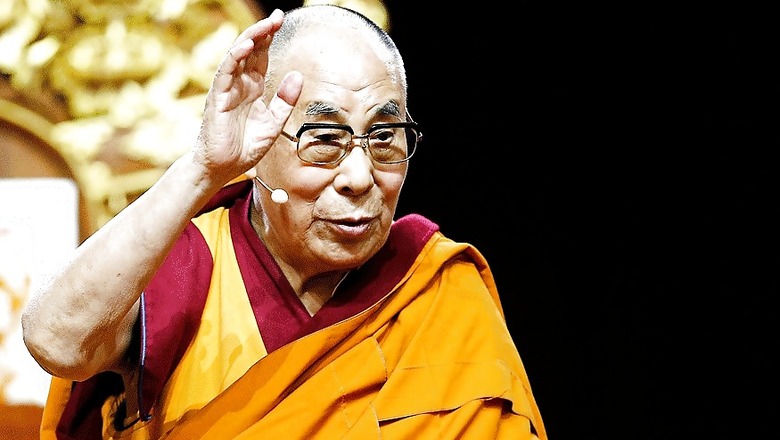
views
Washington: As Tibetans start grappling with the once unthinkable prospect of the octogenarian Dalai Lama's passing, the United States is looking to lay down a red line against China handpicking his successor.
Through a warning from a senior official and legislation under consideration in Congress, the United States is hoping to make clear in advance that Beijing would face international opprobrium if it tries to take over the reincarnation process.
At 84, the 14th Dalai Lama has slowed his once incessant travel down a notch and earlier this year was hospitalised for a chest infection, although there is no indication he faces serious health issues.
Nonetheless, both Tibetan activists and Beijing are keenly aware that his death will mark a major setback in his push for more autonomy for the Himalayan region, depriving the cause of a Nobel Prize winner whose moral teachings and idiosyncratic humour have made him one of the world's most popular religious leaders.
China has not held talks with the Dalai Lama's representatives for nine years and has increasingly hinted it may identify his successor — who, Beijing would presume — would back its iron-fisted rule of Tibet.
A bill recently introduced in the US Congress would call for sanctions on any Chinese official who interferes with Tibetan Buddhist succession practices.
Testifying Wednesday before Congress, David Stilwell, the top State Department official for East Asia, vowed that the United States would keep pressing for "meaningful autonomy" for Tibetans.
"Disturbingly — and ironically — the party continues to assert its role in the Dalai Lama's reincarnation process, even as President Xi has urged party members to remain 'unyielding Marxist atheists,'" he said. "We believe that Tibetans, like all faith communities, must be able to practice their faith freely and select their leaders without interference," he said.
Tibetan monks traditionally choose the Dalai Lama through a ritualistic search that can take years, with a wandering party seeking telltale signs that a young boy is the reincarnation of the last spiritual leader.
The 14th Dalai Lama, who has lived in exile in India since fleeing an aborted uprising in 1959, has mused of a non-traditional succession that would throw off China. He has said he could choose a successor while he is still alive — possibly a girl — or even decide that he was the final Dalai Lama.
Matteo Mecacci, president of the International Campaign for Tibet, a Washington-based pressure group close to the Dalai Lama, said that the legislation introduced in the US Congress would send a clear message both to China and Tibetans.
"We hope that the Dalai Lama will live much longer, but having early legislation, I think, will have an impact on Chinese thinking," he said. "I'm not saying this is going to change the decision of the Chinese government, but they will probably have to reconsider some of the fallout and its implications," he said.
The bill, introduced in the House by Democrat Jim McGovern, would also prevent China from opening new consulates in the United States until Washington can open a mission in Tibet's capital Lhasa.
Mecacci, a former member of parliament in Italy, said the US law would have an impact on decision-makers in Europe and Asia and warned of international effects if China installs a compliant Dalai Lama.
"If you have a religious leader who is the arm of a foreign government and who has Buddhist centers around the world, this is part of a much more ambitious plan to control Buddhism," he said.
Lobsang Sangay, who was elected Tibetan prime minister-in-exile after the Dalai Lama ceded his political role, said Beijing's goal was to "make Tibet into a Chinese territory and make Tibetans into Chinese."
China has faced international criticism for treatment of its mostly Muslim Uighur minority, with the detention of up to one million people in re-education camps in the western region of Xinjiang. China says it is providing vocational training and that it has brought development to both Xinjiang and Tibet.
Some observers expect a repeat of 1995 when China selected its own Panchen Lama and detained a six-year-old identified for the influential Buddhist position — who was dubbed the world's youngest political prisoner.
But Sangay, on a recent visit to Washington, doubted that any Dalai Lama tapped by China would enjoy legitimacy. "Let's say Fidel Castro recognised a pope and tells all the Catholics, 'Hey, this is my pope, will you follow him,'" he said. "How many Catholics will follow that pope?"


















Comments
0 comment